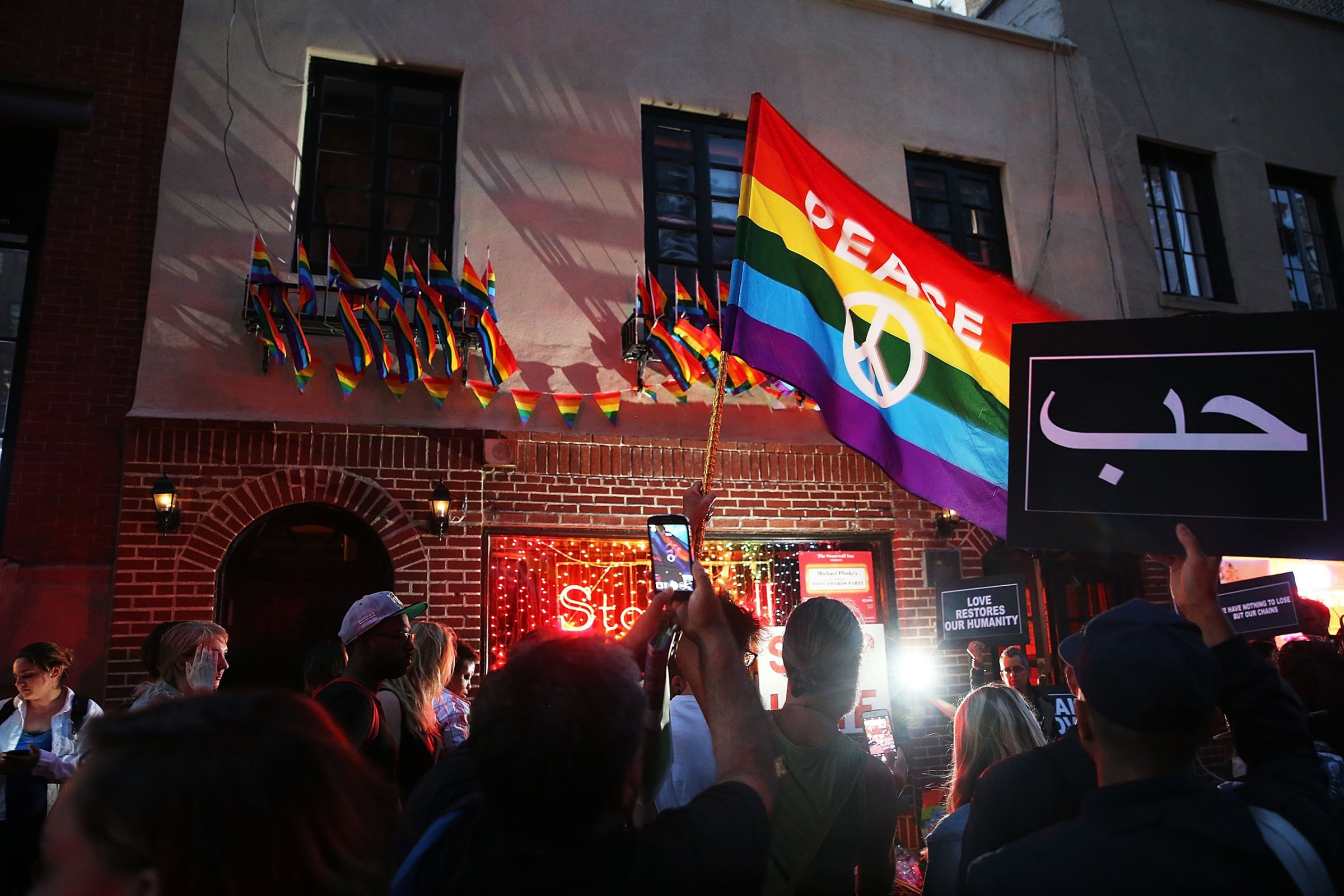
President Obama announced Friday that he had dedicated the area around New York City’s Stonewall Inn, perhaps the place most closely aligned with the modern LGBT rights movement, as a national monument. “Stonewall will be our first national monument to tell the story of the struggle for LGBT rights,” he said.
But while Stonewall is the first, it almost certainly will not be the last national monument dedicated to historic tales of lesbian, gay, bisexual and transgender Americans. In the next few months, the National Park Service plans to publish what is known as a theme study, with a focus on LGBT issues. Theme studies are essentially research projects in which experts explore and explain physical places in the United States that have historical significance, with the aim of helping those places earn designations as official landmarks on historic registers. This one has been underway since the project was announced in 2014—at none other than the Stonewall Inn.
There have been theme studies on the civil rights movement and the Civil War. There are others currently underway on Asian Americans and Pacific Islanders, as well as one related to Reconstruction. This one, set to clock in at 1,200 pages, will acknowledge about 500 locations that have historical significance for the estimated 5% of the population that identifies as LGBT.
“The administration values telling the stories of all Americans,” said Jeremy Barnum, a National Park Service spokesman. “As we enter our second century of stewardship, we really are making sure national parks are relevant to everyone.”
Being listed in a theme study is no guarantee of designation. Rather, the document that emerges is meant to provide material for communities that might want to nominate a spot as historic—and to shine a spotlight on what historians, geographers, journalists, activists and other experts think could make good candidates for telling stories that are currently underrepresented.
“It was not that long ago that the federal government was sort of the enemy of gay people—you can’t get married, you can’t serve,” said Megan Springate, a graduate student at the University of Maryland who organized and wrote part of the new theme study’s 32 chapters. It was also not too long ago, she said, that dedicating one’s academic career to LGBT study came with a warning of not being that employable, but the narrative has changed. The Obama Administration is making an effort to recognize and embrace people who have long existed on the margins and in the shadows of society with its officialdom, and anointing locations meaningful to that population’s scholars is a part of that effort.
Though the report is not yet public, Springate said the types of places mentioned, in chapters on topics like art and health and community, range from hospitals to personal homes to churches, bars and clubs, which have been especially safe spaces for LGBT organizers. Springate said organizations like the National Register of Historic Places are “the nation’s story-keepers,” and beyond their seal conveying that something is important, those designations also help preserve such places by encouraging grants, tax credits or other means of spurring protection and upkeep.
The large number of places that get mention in the study are a reflection of the fact that LGBT people have lived everywhere, Springate said, as a part of every race and countless communities—compared to, say, Civil War sites, which are typically contained to a certain geography. Though Obama’s announcement about the Stonewall Inn isn’t directly tied to the study, it’s not unrelated, the Park Service’s Barnum said. And it’s likely a harbinger of more announcements to come.
“We really want to focus,” he said, “on telling a more diverse story of American history.”
More Must-Reads from TIME
- Cybersecurity Experts Are Sounding the Alarm on DOGE
- Meet the 2025 Women of the Year
- The Harsh Truth About Disability Inclusion
- Why Do More Young Adults Have Cancer?
- Colman Domingo Leads With Radical Love
- How to Get Better at Doing Things Alone
- Michelle Zauner Stares Down the Darkness
Contact us at letters@time.com